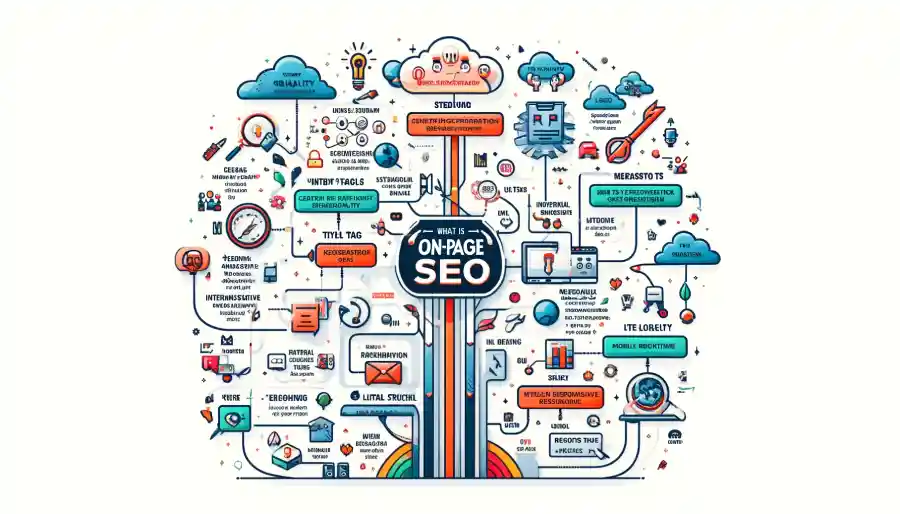
On-page SEO, or on-page search engine optimization, refers to all the strategies and techniques applied directly within a website to improve its position in the search engine rankings. These measures help search engines understand the content of a site and evaluate whether it is relevant to a searcher’s query.
Why Is On-Page SEO Important?
On-page SEO is crucial because it makes your site more visible in search results and improves user experience, following Google’s advice to prioritize content that puts users first by producing valuable material that aligns with searches. It also increases click-through rates, supports content relevancy, aids in local search performance, boosts website speed, ensures mobile-friendliness, and aids in the proper presentation and targeting of content to the intended audience.
On-page SEO encompasses various components, including:
Quality Content: The Core of SEO Success
At the heart of on-page SEO lies the critical importance of quality content. Creating content that is both informative and relevant, as well as engaging and unique, is paramount. This content must meet the search intent of your audience, providing them with the answers they’re looking for. In the realm of SEO, the quality of your content directly impacts your website’s ranking potential.
Mastering Keywords: The Blend of Art and Science
Keywords are vital in on-page SEO, acting as the link between user queries and your content. Including well-researched keywords in your content, meta tags, and URLs increases the visibility and relevance of your website to search engines. For instance, understanding what keyword research entails can significantly boost your SEO initiatives. This crucial step ensures your content matches the queries of your target audience, leading targeted traffic to your site.
Meta Tags: Your Invitation to Engage
Meta tags, including title tags and meta descriptions, are your first chance to engage potential visitors. These elements appear in the search engine results pages (SERPs) and are essential in influencing user click-through rates. By integrating target keywords, such as those related to the Portent SERP Preview Tool, you can create compelling meta tags that grab the attention of searchers.
URL Structure: The Road to Clarity
A clear and concise URL is not only easier for users but also for search engines. Including relevant keywords in your URL, like advice on how to use the Portent SERP Preview Tool, improves the understandability and relevance of your page. This clarity positively affects your website’s search engine rankings, making your content more accessible.
Effective Use of Internal Links
Internal linking is an effective on-page SEO technique that creates a network within your website, making it easier for search engines to crawl and index your pages. By linking related content organically, such as guiding readers on how to conduct keyword research, you not only improve the user experience but also underscore the topical relevance of your content, supporting your SEO efforts.
The Technical Trio: Images, Performance, and Mobile-Friendliness
Optimizing images, speeding up page performance, and ensuring your site is mobile-friendly are crucial technical elements of on-page SEO. Alt text for images, quick loading times, and a design that’s easy to view on mobile devices cater to both search engine algorithms and user preferences, offering an engaging experience across all devices.
Schema Markup: The Advantage in SERPs
Using schema markup can give your website an advantage in the SERPs by generating rich snippets. These enhanced descriptions make your listing more attractive and informative, potentially increasing your click-through rate and driving more traffic to your site.
Conclusion: The Vital Role of On-Page SEO
On-page SEO is an essential part of any successful digital marketing strategy. By focusing on quality content, strategic use of keywords, engaging meta tags, and a user-friendly URL structure, you can significantly improve your website’s visibility in search engines. Remember, on-page SEO requires continuous effort. Keeping up with the latest SEO practices and constantly refining your site will help you maintain a competitive edge in the digital world.


Pingback: What Is Local SEO? Explore Its Importance in Digital Marketing - Vlineperol